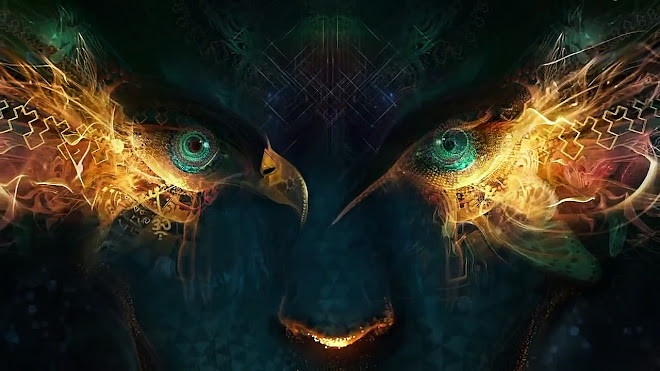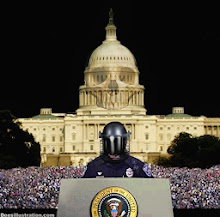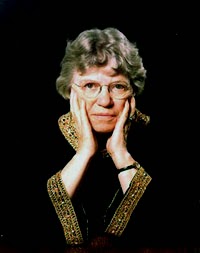Ars Disputandi 7 (2007), http://www.ArsDisputandi.org
[1] In Nietzsche’s Philosophy of Religion, Julian Young offers a detailed, book by book interpretation of Nietzsche’s reflections on religion and religious communitarianism. In his first book, The Birth of Tragedy, Nietzsche views Greek tragedy as a mechanism that gathers people collectively in view of their gods, and argues that modern-day nihilism can only be saved by reviving such an ancient festival. Although some readers believe that Nietzsche abandons these views after his Wagnerian influence, Young argues the opposite through a careful analysis of The Birth of Tragedy in relation to Nietzsche’s later publications. And while many simply regard Nietzsche as an atheist, Young does not view Nietzsche as a non-believer, radical individualist, or immoralist, but as a nineteenth-century religious reformer belonging to a German Volkish tradition of conservative communitarianism.
[2] Concerning religion, Young’s fundamental argument is that although Nietzsche rejects the Christian God, he is not ‘anti-religious.’ Rather, Nietzsche is a religious thinker precisely because he adopts Schopenhauer’s analysis of religion as an intellectual construction that addresses the existential problems of pain and death, and gives authority to community-creating ethos. Nietzsche views Dionysian pantheism as a solution to the problems of pain and death, and argues for the flourishing of a new ‘festival,’ based on a humanity-affirming religion modeled on that of the ancient Greeks.
[3] Young’s insights are well-argued and presented. The most fascinating aspect of his book is the manner in which he connects Nietzsche’s religious and political views, which are indeed intertwined. Disenchanted with scholarly interpretations, such as Walter Kaufmann’s, that promote Nietzsche as an ‘apolitical’ thinker – far apart from the modern world – Young attempts to place Nietzsche’s ideas in the heart of (positive) Volkish tradition, without turning him into the godfather of Nazism (202). Young acknowledges that Kaufmann’s heart was in the right place, more than fifty years ago, when attempting to portray Nietzsche as apolitical in order to seve any possible ties of Nietzsche to Nazism. However, according to Young, a sanitized Nietzsche, compatible with a liberal humanist outlook, is also a misinterpretation of the nineteenth-century philosopher.
[4] Politically, Young situates Nietzsche in the romantic-Volkish tradition because Nietzsche views modernity as a sick culture, and wants to return to the Golden Age of Greece; he rejects democracy; he deplores stateism; and detests the private pursuit of goods that have come to replace the primary commitment to fostering community. Further, like many Volkists, Nietzsche is concerned with small ‘spiritual’ things in relation to bodily hygiene (such as diet, dress, and dance); he is a pantheist similar to Volkish thinkers such as Hцlderlin and Schelling; and he also rejects democracy and yearns for a hierarchical society ruled by a wise and strong leader. But as Young stresses throughout his book, the heart of Nietzsche’s Volkish thinking lies in the return of communal religion; a reintegration of the Volk through the establishment of one communal faith (210).
[5] Young strongly insists that Nietzsche does not share the wicked aspects of some Volkish thinkers. Unlike Nazis’ such as his sister Elisabeth, Alfred Bдumler, and Ernst Bertram, Nietzsche was anti-antisemitic, anti-militaristic, and anti-nationalistic, rejecting German nationalism in favor of European cosmopolitanism. Thus, regarding Nietzsche as a proto-Nazi or Nazi would be erroneous.
[6] Most all of Young’s primary observations concerning Nietzsche’s religious and political views seem accurate, including his notion that Nietzsche respects the cosmopolitanism of the medieval Church, wanting to replace the Christian God with Greek ones. But less convincing is Young’s radical view that ‘Nietzsche values social stability and cohesion at least as much as he values individual creativity,’ and that he wants to resolve the tension between the ‘free spirit’ and the ‘herd type’ through the creation of communal religion (88–89). Writing against philosophers such as John Rawls and Philippa Foot, who regard Nietzsche as an ‘immoral elitist’ because he cares little about anything other than ‘exceptional types,’ Young argues that Nietzsche values the exceptional type only as a means to flourishing a total social organism (135). Young correctly states that Nietzsche regards himself as an ‘immoralist’ in the sense that he rejects Christian morality, and that he is paternal and patriarchal, not immoral. For instance, Young shows that Nietzsche indeed places women in subordinate roles, not because he is ‘immoral,’ but because he believes that most people best flourish in subordinate positions, and that this positively contributes to a healthy society. Even if Young is correct in this observation – and I think he is – it does not logically follow that Nietzsche values the ‘free spirit’ (which women can be) and the herd animal equally, nor does it follow that Nietzsche is neutral concerning any preference toward his infamous distinction of master (noble) and slave (Christian) morality (135). Young indeed acknowledges that as individuals, Nietzsche views free spirits as having greater value (because they are few and far between), but also claims that as a type the exceptional individual is of no greater value than the herd type because both are necessary to the communities’ survival as a whole (97–98). Perhaps Young is correct. But perhaps it might be more accurate to state that Nietzsche indeed values ‘a people;’ he wants the production of more free-spirits to join and rule the herd that will always exist. Put that way, Nietzsche does not ‘value’ both equally; the free-spirit is the desirable exception that creates new values, the mob will always be in abundance. Nietzsche truly ‘values’ the former, and ‘accepts’ the latter.
[7] Parenthetically, two minor comments: the first is that Young’s book and bibliography could have referenced more contemporary book-length entries on Nietzsche and Religion and Nietzsche and Politics, especially National Socialism. The second is that the title of the book does not do the work justice. It should have alluded, in some way, to the political threads woven throughout, which significantly contribute to the book’s originality and strength.
[8] Overall, Young’s book challenges readers to examine and rethink many common assumptions concerning Nietzsche’s views. He writes well and with conviction—supporting his arguments with Nietzsche’s texts, and he makes a valuable attempt to shatter casual observations about a thinker who always wanted to be ‘read well.’ Young reads Nietzsche well, and his book is valuable to Nietzsche scholarship, and to a wide range of readers in German history and philosophy. Young plants Nietzsche firmly in the heart of German intellectual history, where he belongs.





































No comments:
Post a Comment